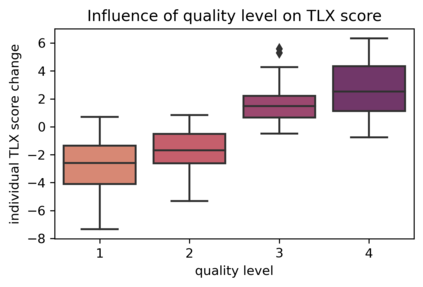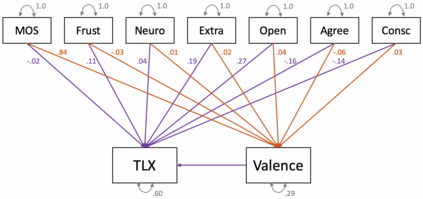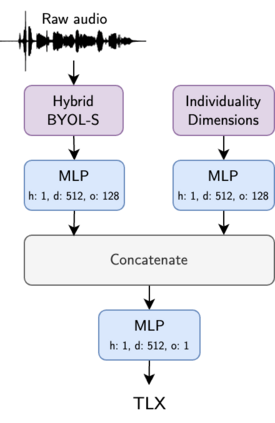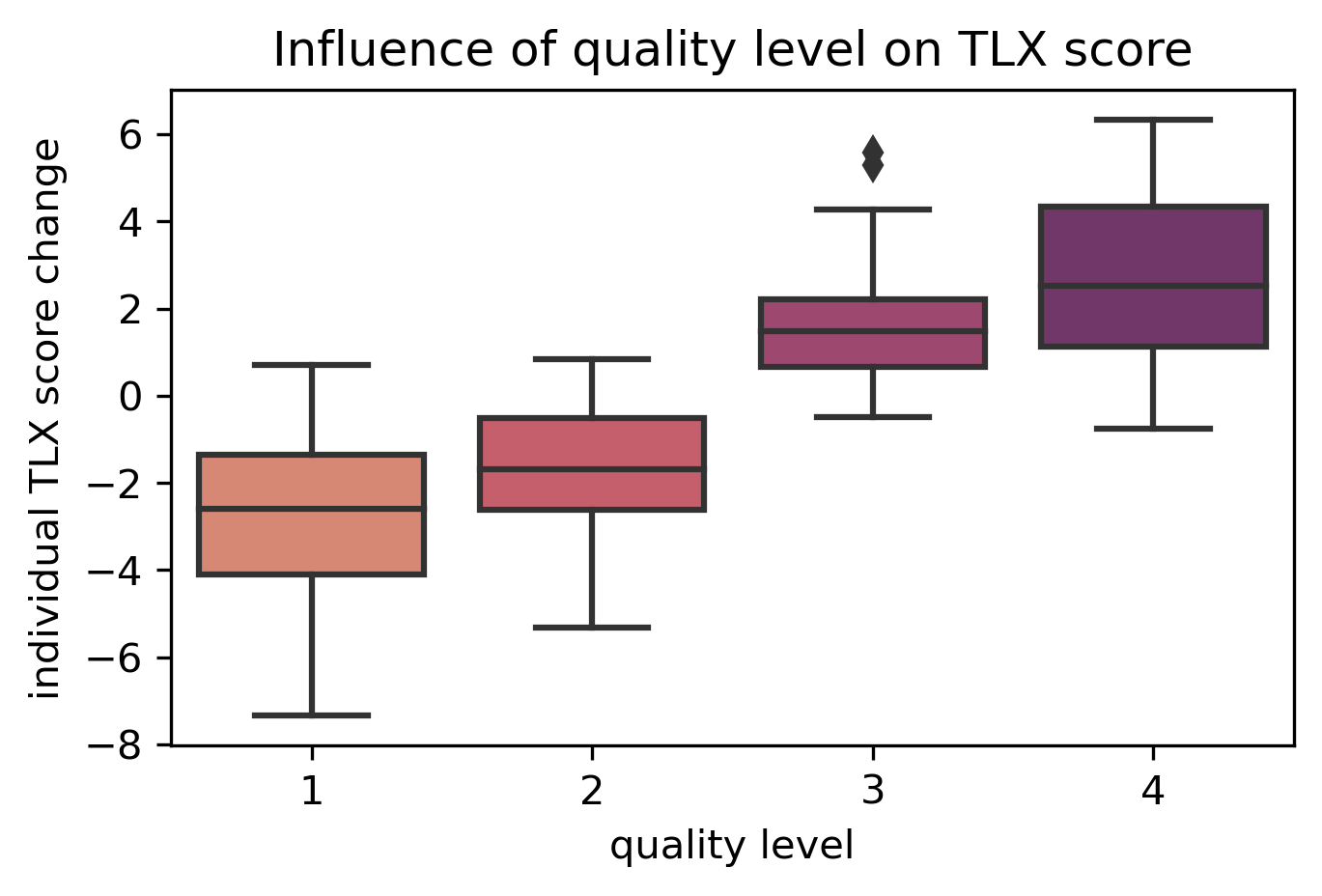Estimating the quality of remote speech communication is a complex task influenced by the speaker, transmission channel, and listener. For example, the degradation of transmission quality can increase listeners' cognitive load, which can influence the overall perceived quality of the conversation. This paper presents a framework that isolates quality-dependent changes and controls most outside influencing factors like personal preference in a simulated conversational environment. The performed statistical analysis finds significant relationships between stimulus quality and the listener's valence and personality (agreeableness and openness) and, similarly, between the perceived task load during the listening task and the listener's personality and frustration intolerance. The machine learning model of the task load prediction improves the correlation coefficients from 0.48 to 0.76 when listeners' individuality is considered. The proposed evaluation framework and results pave the way for personalized audio quality assessment that includes speakers' and listeners' individuality beyond conventional channel modeling.
翻译:评估远程语音通信的质量是受演讲者、传输频道和听众影响的一项复杂任务。例如,传输质量的退化会增加听众的认知负荷,从而影响谈话的总体质量。本文件提供了一个框架,将依赖质量的变化和控制最外界的影响因素(如模拟谈话环境中的个人偏好)隔离开来。所进行的统计分析发现刺激质量与听众的价值和个性(可接受性和公开性)之间存在重要关系,同样,在听力任务期间所预见的任务负荷与听众的个性和沮丧不宽容之间也存在重要关系。任务负荷预测的机器学习模型将相关系数从0.48提高到0.76,在考虑听众的个性时将相关系数从0.48提高到0.76。拟议的评价框架和结果为个人化的音质评估铺平了道路,其中包括演讲者和听众的个性,而不是传统的频道模型。</s>







